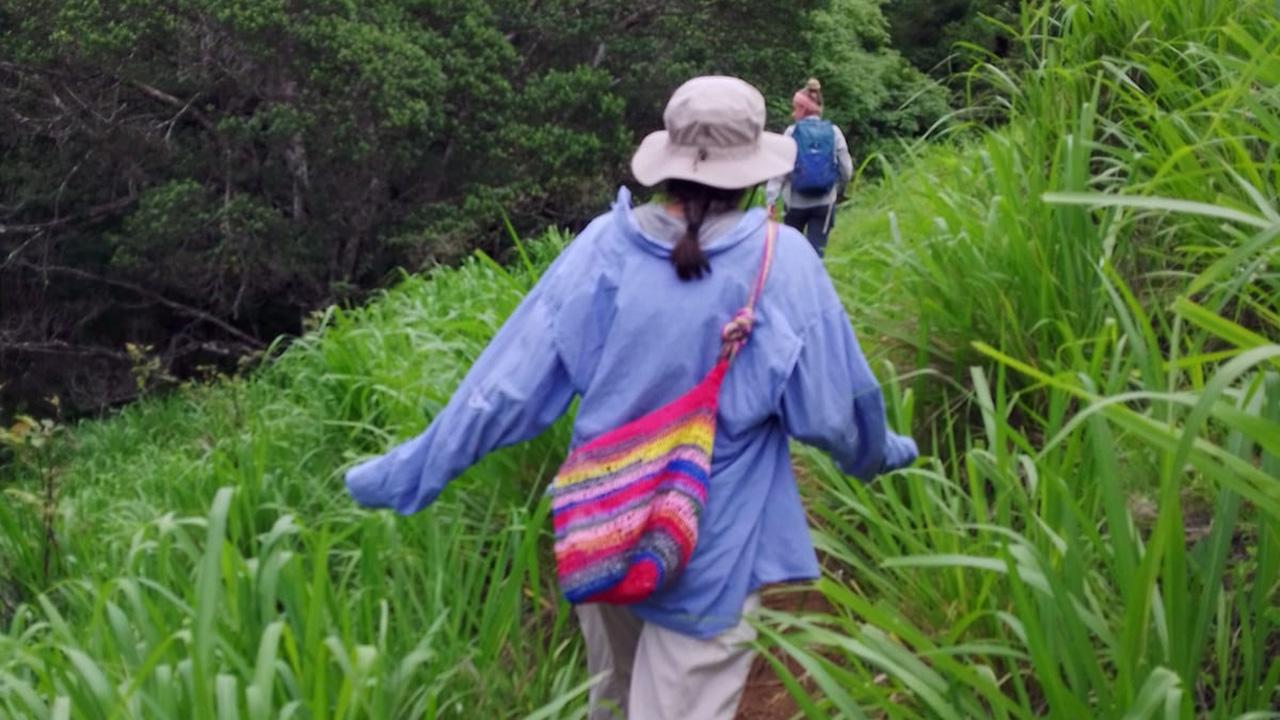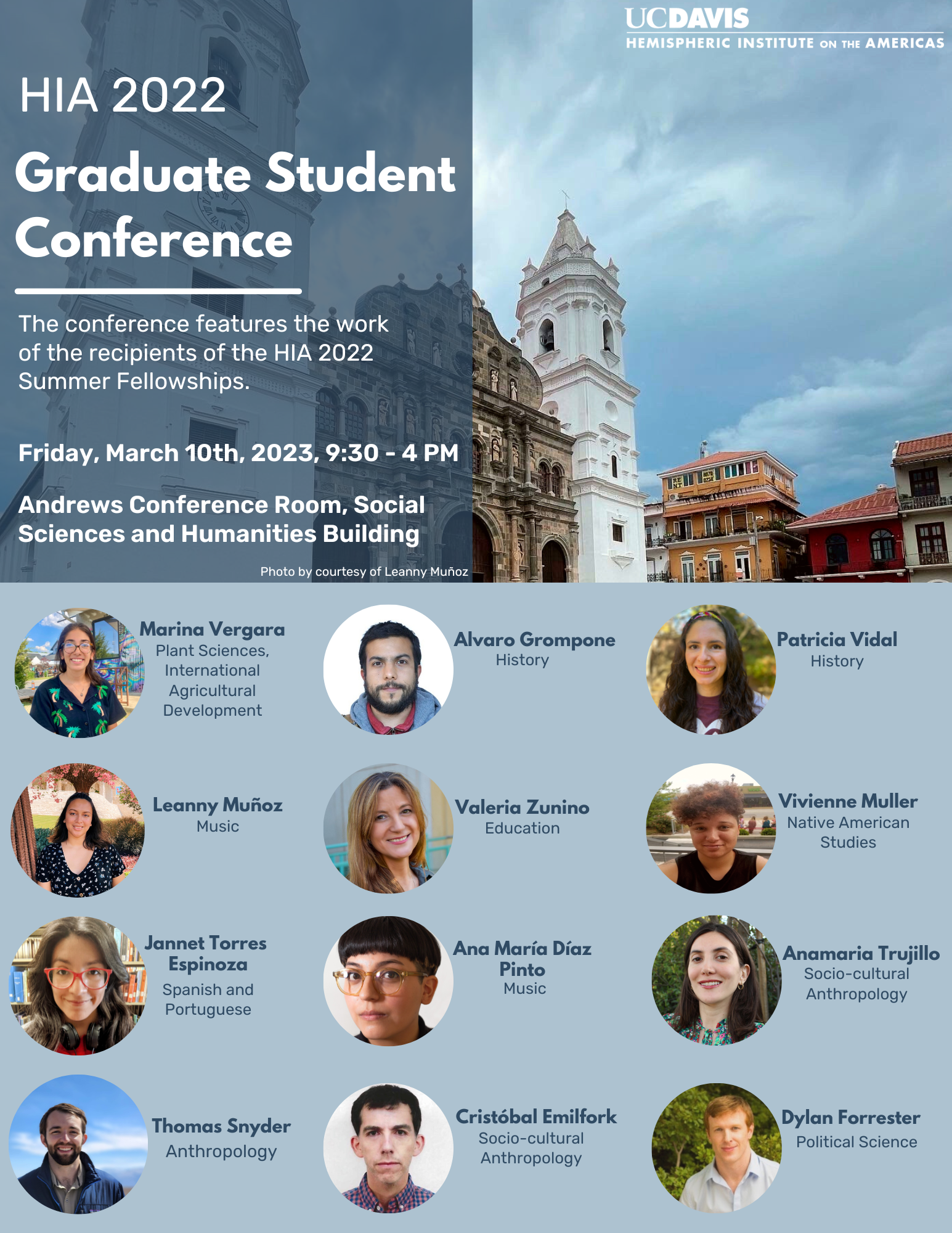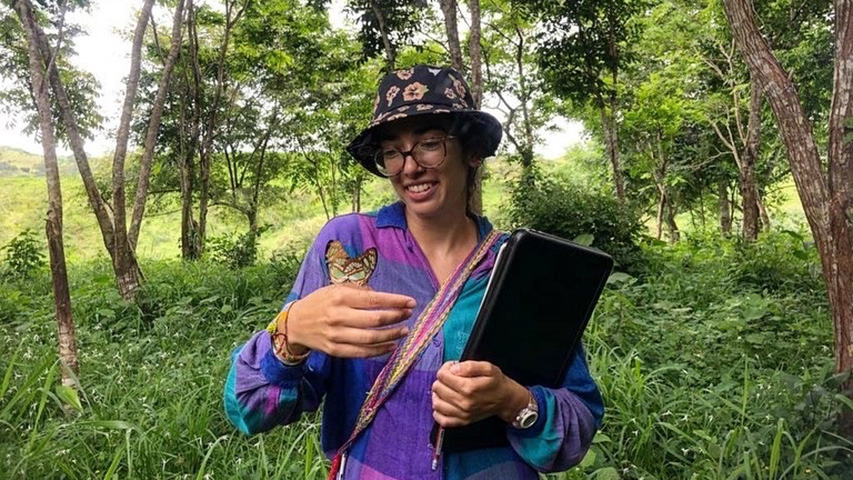
Vergara presents findings on farmer-to-farmer education in Panama
“We’re not teaching, we are sharing.”
Farmers from rural Panama are learning a more sustainable way to graze their cattle, and now are sharing that knowledge with other farmers who want to learn, too. But, they view the relationship as an informal exchange, rather than a teacher-student relationship ̶ and agricultural extension programs can learn from that view, graduate student Marina Vergara found.

Vergara will present her findings during the Graduate Student Conference, hosted by the UC Davis Hemispheric Institute on the Americas on Friday, March 10, on campus (see box for details). The title of her talk, translated into English, says it all: “We’re not teaching, we are sharing.” Vergara is in the UC Davis Department of Plant Sciences and a master’s degree candidate in the international agricultural development track.
Thanks to her fellowship through HIA, Vergara spent the summer with farmers participating in Yale University's Environmental Leadership and Training Initiative (ELTI) in the Pacific-side province of Los Santos, Panama. For a decade, the initiative has been working with members of APASPE, a local farmer organization, teaching farmers to graze their cattle on land that includes both pasture and trees. Felling forests and jungle to allow for cattle grazing – an important economic activity -- is a standard and widespread practice throughout Latin America, causing a host of environmental problems. Four farmers who have received training through ELTI are now co-facilitating trainings with other farmers coming into the program, and they lead tours of their silvopastoral farm.
“I wanted to see how ELTI’s participatory model facilitates knowledge exchanges between model APASPE farmers and farmers entering the program,” Vergara said. “As an APASPE model farmer explained to me, they are not teachers, but instead sharers of their silvopastoral knowledge and their experiences farming in this system. I wanted to explore the farmer-to-farmer learning dynamic as not just an extension teaching tool, but a way that farmers share information with one another.”
Idea for future extension programs
This view from the farmers’ perspective could affect the way participatory education is implemented in future extension programs, Vergara added.
Vergara has a bachelor’s degree in environmental science, and her graduate advisor is Amanda Crump, an associate professor of teaching. “Receiving funding from HIA provided Marina a great opportunity to learn from Panamanian farmers, and I’m excited she is able to share these findings and learn from other scholars studying in Latin America,” Crump said.
The HID Graduate Student Conference will be held from 9:30 a.m. to 4 p.m. Friday, March 10, at the Andrews Conference Room, Social Sciences and Humanities 2203, on campus. All are welcome, and no registration is necessary.

Vergara will speak from 9:30-10 a.m. Her topic is: “No Estamos Enseñando, Estamos Compartiendo: A Phenomenological Study Exploring Participatory Extension in Panama.” Vergara was among 12 UC Davis students to receive HIA fellowships for their work and who will present at the conference.
“We are proud of the work these students are doing,” added HIA Director Juan Diego Díaz. “This is the flagship event of our institute, and we are hoping to raise awareness of the work of our students and also to get more financial support for the much-needed HIA Summer Fellowships.”
Conference details
- The conference is from 9:30 a.m. to 4 p.m. Friday, March 10, at the Andrews Conference Room (Room 2203), in the Social Sciences and Humanities Building.
- Marina Vergara is the first speaker, at 9:30 a.m.
- Admission is free
- Click here for the onference program
Related links
Juan Diego Díaz, Director, Hemispheric Institute of the Americas
Media Resources
- Trina Kleist, UC Davis Department of Plant Sciences, tkleist@ucdavis.edu, (530) 754-6148 or (530) 601-6846
